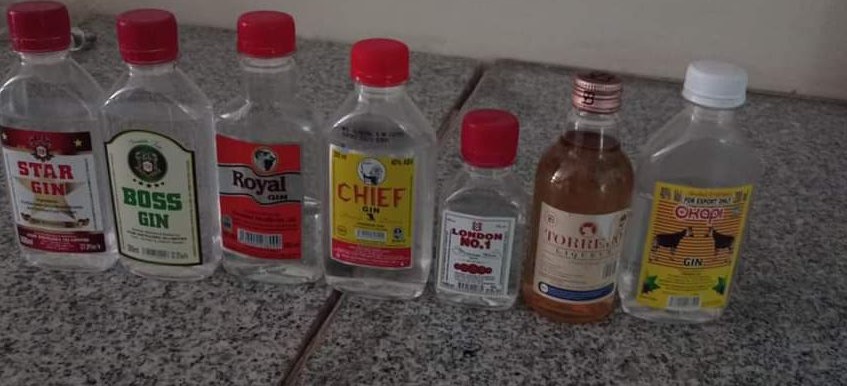Local authorities in South Sudan’s Warrap State have banned the sale of alcoholic spirits and the brewing of a potent gin popularly known as 'Siko' in the state capital, Kuajok.
The ban, ordered by the deputy governor, Ayen Mayor, came to effect last weekend but has received mixed reactions as some people welcoming and others condemning it.
The order was announced earlier this month but the traders say it was targeting what they called star gin whisky for which they complied only to be taken by surprise when other whiskies and spirits were added to the list last week without consultation or an ultimatum.
The prohibition, which is being executed by Kuajok Municipal Council, saw the confiscation of undisclosed quantities of whisky brands and other spirits from all hotels, wholesale and retail shops in the town.
The prohibition ordinance also imposed a fine of 100,000 SSP on traders found in possession of the banned drinks and women found brewing Siko in the town.
On Monday, the Mayor of Kuajok town, Gabriel Madut, defended the order citing the abolished beverages as being responsible for many deaths in the town.
According to Madut, three people have allegedly died in the Kuajok market in the last three days due to consumption of those banned drinks.
“Yesterday on Sunday we found a person half dead and when we tried to take him to the hospital he passed away before reaching the hospital. On the same night, children fought with knives over little food and killed themselves here in the market. All that happened because they were drunk,” Mayor Madut said.
However, the traders told Radio Tamazuj Monday that they were not given enough time to dispose of the confiscated alcoholic beverages.
They also say they have been asked to pay 100,000 SSP each to get back their goods and transport them out of the state which they say is too much.
John Bosco who runs the New Sudan Hotel in the heart of the town proposed that they pay 20,000 SSP.
“My whisky is worth like 200,000 SSP but I also have other friends from Ethiopia who are here and they have many boxes. So, I am not alone, we are like ten in number and they are telling each of us to pay 100,000 SSP each as a fine and we have told them we don’t have that money because we were not informed on time to take that whisky back,” Bosco said. “What we were told was that Star gin was banned and we took it back to the wholesalers. We said that if they charge 10,000 or 20,000 SSP per person, we can pay and then we get them out.”
Local women who brew Siko have also complained saying the ban will render them and their families destitute. They said women who brew Siko are widows and they use the proceeds to take care of the orphans they are left with.
“Brewing of alcohol is done because of poverty and so that children can feed. Some women are widows because their husbands are dead and instead of going to beg or do evil deeds it better you brew Seiko. If brewing is stopped, we are confused about what to do next. Tea making it congested and making groundnut paste is also overcrowded,” Akon Akol, a siko brewer lamented.
She appealed to the state government to give them loans to venture into other businesses.
Like her counterparts, the chairperson of Warrap State Women Union, Awel Akok, expressed disapproval of the ban on siko brewing.
Awel says the government should have first devised an alternative means to address the problems that would be caused by the execution of the order.
“For sure there will be negative effects because there are no alternative means for the women who were doing that business. If there was a loan or micro-finance program for them it would have been okay. The women who were working in that field are widows and powerless women. If they are given employment in the government it will be fine,” Awel said.
The women's chairperson appealed to the state government to talk to developmental partners to initiate projects to fill the gap that has been created by the ban.




